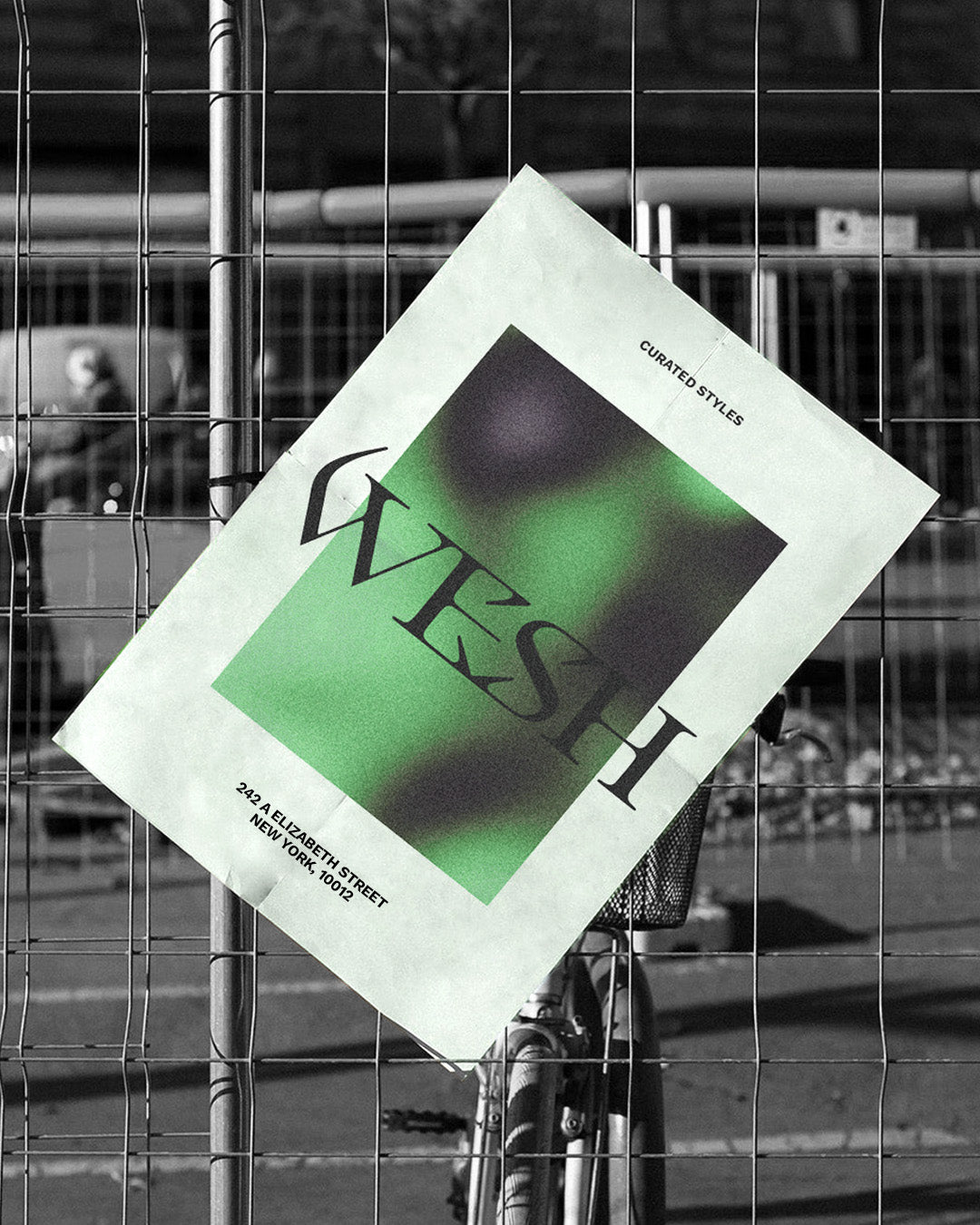#06 WESH Interview: Emergency Room Beirut
by Amelia Roman
·
We were in conversation with Eric, the founder of Emergency Room Beirut - a fashion brand that focuses on upcycled fashion and unique creations.
WESH: Can you first tell us a bit about you, Eric? What’s your story?
Eric: I grew up in Beirut, although not 100% from Beirut; my father is French, so was my upbringing in a French school disconnected me from a reality that is the other half of my identity: Lebanese, and from the actual culture that was surrounding me: Arabic. I feel like these conflicting things and the back and forth between both really shaped a lot of my identity. Being well rooted in my comfort, and somewhat privileged, yet very curious to discover my surroundings and always question both ends and both worlds, and their perception of one another.
WESH: What urged you to leave the comfort of the luxury fashion studio behind and start from scratch eight years ago?
Eric: I was working with a couture designer, solely designing evening wear pieces, often only worn by the elite and people on red carpets. While it was exciting at first, it quickly became redundant, and felt disconnected from my reality, these were not clothes or people I would see in my daily life, my friends and I had a totally different lifestyle. Through a project I was working on with an NGO, I discovered Tripoli, a city in the north of Lebanon that’s much poorer than Beirut. There, I met seamstresses and tailors that were very skilled but jobless, I also was confronted with the environmental reality, Eastern problems caused by the Western fast fashion industry. Every season, tons of second-hand clothes - sometimes barely worn - arrive in containers and are resold in massive souks where retailers treat clothes like perishable products, often simply discarding them at the end of the season. Through this experience (training seamstresses) I reconnected with the initial purpose and reason behind my interest in fashion and decided to establish my own brand, using the discarded clothes, and working with these artisans to produce valuable and desirable clothes for people who will live in them.
WESH: Why the name Emergency Room?
Eric: For all the reasons that pushed me to start the brand, because it was born out of necessity and emergency. It’s alarming because the situation is alarming, and I couldn’t think of a more fitting name to grab people’s attention and get them to talk about the state of the fashion industry, which is sick in more ways than we can imagine.
WESH: How do you select the fabrics you work with?
Eric: Like a chef would select his ingredients, I start each project, collection, or drop by going to the souks, the second-hand market, and check what’s available, and what inspires me. Most often I go for whatever is available in abundant quantities, these are items that people do not want (obviously, since they’ve piled up and no one is buying them) but underdogs deserve some love too so I grab these, put them on the table and start scratching and designing.
WESH: How is the goal of sustainability shaping ER’s everyday decisions?
Eric: Sustainability very much dictates every decision we make, big or small. First I was very strict, with time I became a bit more flexible, understanding that change is not easy and won’t happen overnight, but every step we take in that direction is a step that gets us closer to the ultimate goal.
WESH: How do ER and WESH NYC work together? How would you like to see your brand’s presence evolve in the shop?
Eric: We work so well with WESH, I would like to visit, but from what I see on social media, I feel like we share the same values, the people who visit WESH are very much like the people who shop in our store in Beirut, I’m talking about people that know what’s up, speak up and rebel but also take time to be kind, generous and enjoy having fun.
WESH: Your grandma Hoda sounds fascinating, could you tell us one anecdote about her
Eric: My grandma is my muse, not so much because she looks great and can make any piece of clothing look like the best piece ever. But because she’s moved by love, everything she does, she does it out of love, and it’s because she loves me that she accepted to model for me and it opened a whole new world for her, in her eighties, like a rebirth. I love thinking about this and believing that when you do things from a place of love for others, you’ll enable great things to happen to you as well!


